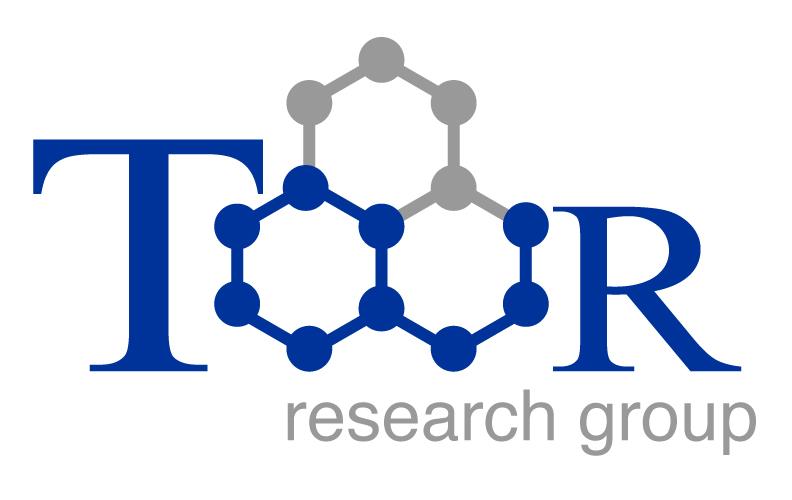Below are the articles published in 2012 and earlier.
Transparent memory chips are coming
March 28th, 2012Want a see-through cellphone you can wrap around your wrist? Such a thing may be possible before long, according to Rice University chemist James Tour, whose lab has developed transparent, flexible memories using silicon oxide as the active component. A flexible, transparent memory chip created by researchers at Rice University. Courtesy Tour Lab/Rice University Tour Graphene: Oil industry’s rising starDecember 16th, 2011
RICE (US) — Graphene’s strength, light weight, and solubility may ultimately make it the answer to the efficient, environmentally sound production of oil, a new study shows. http://www.futurity.org/science-technology/graphene-oil-industrys-rising-star/
A starring role for graphene
December 9th, 2011Rice University’s functionalized graphene oxide plays part in next-generation oil-well drilling fluids Graphene’s star is rising as a material that could become essential to efficient, environmentally sound oil production. Rice University researchers are taking advantage of graphene’s outstanding strength, light weight and solubility to enhance fluids used to drill oil wells. The Rice University lab Graphene lights up with new possibilitiesDecember 2nd, 2011
Rice researchers’ two-step technique makes graphene suitable for organic chemistry BY MIKE WILLIAMS Rice News staff The future brightened for organic chemistry when researchers at Rice University found a highly controllable way to attach organic molecules to pristine graphene and make the miracle material suitable for a range of new applications. The Rice lab of Graphene pushes popularity of Rice papersNovember 29th, 2011
FROM RICE NEWS STAFF REPORTS A decade ago, nobody had ever heard of graphene. Now the single-atom-thick sheet of carbon is the focus of intense research at labs all over the world, nowhere more than at Rice University. The Rice lab of Professor James Tour finds itself among the most highly regarded graphene labs in Nano bundles pack a powerful punchSeptember 12th, 2011
Nano bundles pack a powerful punch Solid-state energy storage takes a leap forward at Rice University Rice University researchers have created a solid-state, nanotube-based supercapacitor that promises to combine the best qualities of high-energy batteries and fast-charging capacitors in a device suitable for extreme environments. A paper from the Rice lab of chemist Robert Hauge, […]
Rice-made memory chips lost in cargo launch failure
September 12th, 2011
Rice-made memory chips lost in cargo launch failure FROM RICE NEWS STAFF REPORTS A Russian cargo ship carrying an experiment from Rice University was lost after launch from Kazakhstan Aug. 24. On the eve of Rice NASAversary, silicon oxide memory chips developed at the university were bound for the International Space Station (ISS). According to Sugar and spice, and even things not so nice: Graphene synthesisSeptember 12th, 2011
Our research was featured on MaterialsViews.com: Sugar and spice, and even things not so nice: Graphene synthesis
Highlight in Nature Nanotechnology–Graphene from waste materials
September 6th, 2011
Our paper on the synthesis of graphene from food and waste materials was highlighted in Nature Nanotechnology: Graphene from waste materials
One box of Girl Scout Cookies worth $15 billion
August 8th, 2011
Rice University lab shows troop how any carbon source can become valuable graphene Scientists can make graphene out of just about anything with carbon — even Girl Scout Cookies. Graduate students in the Rice University lab of chemist James Tour proved it when they invited a troop of Houston Girl Scouts to their lab to Dream screens from grapheneAugust 2nd, 2011
Technology developed at Rice could revolutionize touch-screen displays BY MIKE WILLIAMS Rice News staff Flexible, transparent electronics are closer to reality with the creation of graphene-based electrodes at Rice University. The lab of Rice chemist James Tour lab has created thin films that could revolutionize touch-screen displays, solar panels and LED lighting. The research was Nano-based RFID tag, you’re itJanuary 18th, 2010
Long lines at store checkouts could be history if a new technology created in part at Rice University comes to pass. Rice researchers, in collaboration with a team led by Gyou-jin Cho at Sunchon National University in Korea, have come up with an inexpensive, printable transmitter that can be invisibly embedded in packaging. It would Nanodragsters hit the streetJanuary 8th, 2010
Rice professors are new AAAS fellows
December 17th, 2009
Tiny owls take flight
December 17th, 2009
Tour a top-10 chemist
December 11th, 2009
Ranked one of the Top 10 chemists in the world over the past decade, by a Thomson Reuters citations per publication index survey, 2009
Good to grow
November 13th, 2009
A little nano, a lot of oil
October 27th, 2009
Rice cuts deal to research graphene-infused drilling fluids BY MIKE WILLIAMS Rice News staff A wall of graphene a single nanometer wide could be the difference between an oil well that merely pays for itself and one that returns great profit. Rice University and Houston-based M-I SWACO, the world’s largest producer of drilling fluids for Rice opens Cure for Needy on the WebOctober 20th, 2009
Students invite chemists everywhere to help with orphaned drugs, diseases Suppose you had a disease for which there’s a proven cure, but nobody makes the drug. Where do you turn? That’s a question many around the world face every day and one Rice University students hope to answer by reaching out through the Internet. The Graphitic memory techniques advance at RiceSeptember 9th, 2009
Researchers simplify fabrication of nano storage, chip-design tools Advances by the Rice University lab of James Tour have brought graphite’s potential as a mass data storage medium a step closer to reality and created the potential for reprogrammable gate arrays that could bring about a revolution in integrated circuit logic design. In a paper published Graphite’s good tidingsSeptember 4th, 2009
Tour group advances fabrication of nanoscale memory, chip-design tools BY MIKE WILLIAMS Rice News staff Advances by the Rice University lab of James Tour have brought graphite’s potential as a mass data storage medium a step closer to reality and created the potential for reprogrammable gate arrays that could bring about a revolution in integrated Molecules mean more MooreJuly 14th, 2009
‘Silicon with afterburners’ developed at Rice could be boon to electronics manufacturers BY MIKE WILLIAMS Rice News staff Silicon is at the heart of an electronics revolution that has buoyed the civilized world for decades. But as time goes on and technology advances, it’s becoming apparent that silicon could use a little help. A Rice Nobel opportunityJune 17th, 2009
BY MIKE WILLIAMS Rice News staff Any young scientist will tell you it’s a thrill to talk shop with a Nobel Prize laureate. So what must it be like to encounter 20 of them at once? In less than a month, Andria Denmon and Ashley Leonard (Tour group member) will have the answer. For more Hellooo down there!May 21st, 2009
Rice labs hope tiny clusters will find new oil in old wells BY MIKE WILLIAMS Rice News staff Laboratories at Rice University are collaborating on a new way to detect oil deposits in wells once thought to be tapped out. Groups led by Rice professors James Tour, Michael Wong and Mason Tomson and Rice researcher Tour honored by Houston Technology CenterMay 12th, 2009
BY MIKE WILLIAMS Rice News staff Rice Professor James Tour was one of six high-profile Houstonians honored at the 10th anniversary celebration of the Houston Technology Center (HTC) this week, earning a special achievement award for his advances in nanotechnology. For more see http://www.media.rice.edu/media/NewsBot.asp?MODE=VIEW&ID=12570&SnID=1331289734
Rice researchers unzip the future
April 15th, 2009
Simple process makes thin, conductive nanoribbons BY MIKE WILLIAMS Rice News staff Scientists at Rice University have found a simple way to create basic elements for aircraft, flat-screen TVs, electronics and other products that incorporate sheets of tough, electrically conductive material. For more see http://www.media.rice.edu/media/NewsBot.asp?MODE=VIEW&ID=12443&SnID=1331289734
Science rocks at Rice
February 5th, 2009
Rice researchers get hip, use video games to teach kids BY MIKE WILLIAMS Rice News staff You wouldn’t expect to hear the words “James Tour” and “Guitar Hero” in the same sentence. Until now. The much-honored Rice University professor and a team of students have been working away on a set of songs for the Rice rolls out new nanocarsJanuary 30th, 2009
Fluorescent imaging shows models operate at room temperature This year’s model isn’t your father’s nanocar. It runs cool. The drivers of Rice University’s nanocars were surprised to find modified versions of their creation have the ability to roll at room temperature. While practical applications for the tiny machines may be years away, the breakthrough suggests Rice’s James Tour wins Feynman PrizeDecember 17th, 2008
Foresight Institute honors professor for nanotechnology breakthroughs BY MIKE WILLIAMS Rice News staff James Tour, the inventor of the nanocar at Rice University, has been awarded the prestigious Foresight Institute Feynman Prize for experimental nanotechnology for 2008 by the California think tank dedicated to the beneficial implementation of nanotechnology. For more see http://www.media.rice.edu/media/NewsBot.asp?MODE=VIEW&ID=11898&SnID=1331289734
Nanocars get into top gear
January 24th, 2006
In 2005, James Tour and colleagues at Rice University, Texas, US, made headlines when they reported nanocars with fullerenes for wheels and a chassis of fused aromatic rings.1 The vehicles, three nanometres in size, rolled across gold surfaces observed by scanning tunnelling microscopy. Read more here.
Small Times names Rice chemist top nanotech innovator
January 15th, 2006
Rice University chemist and nanocar inventor James Tour has been selected Innovator of the Year in Small Times magazine’s Best of Small Tech Research Award competition. The awards recognize the best people, products and companies in nanotechnology, microelectromechanical systems (MEMS) and microsystems.
Hear Dr. Tour in a Podcast
January 5th, 2006
From May 10, 2006. Click here for a direct link to the podcast. Each week, SCIENCE AND SOCIETY presents interviews with trendsetting and groundbreaking researchers, industry-leading executives, and senior government officials, providing in-depth coverage of our core areas. SCIENCE AND SOCIETY is made possible in part by the generous support of the Chemical Heritage Foundation.
Rice scientists attach motor to single-molecule car
January 4th, 2006
In follow-on work to last year’s groundbreaking invention of the world’s first single-molecule car, chemists at Rice University have produced the first motorized version of their tiny nanocar. The research is published in the April 13 issue of the journal Organic Letters.
Rice scientists build world’s first single-molecule car
January 1st, 2006



